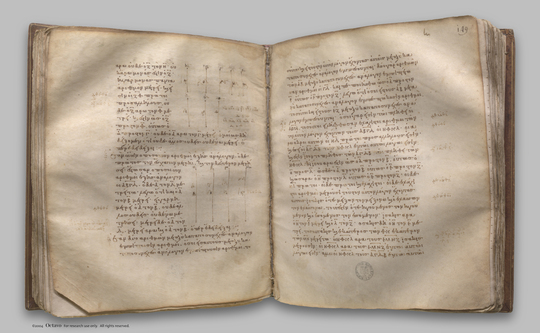index prev next | digilib folio 153

If there be as many numbers as we please in continued proportion, and the first measure the last, it will measure the second also.
| Ἐὰν ὦσιν ὁποσοιοῦν ἀριθμοὶ [ ἑξῆς ] ἀνάλογον, ὁ δὲ πρῶτος τὸν ἔσχατον μετρῇ, καὶ τὸν δεύτερον μετρήσει. Ἔστωσαν ὁποσοιοῦν ἀριθμοὶ ἑξῆς ἀνάλογον οἱ Α, Β, Γ, Δ, ὁ δὲ Α τὸν Δ μετρείτω: λέγω, ὅτι καὶ ὁ Α τὸν Β μετρεῖ. | If there be as many numbers as we please in continued proportion, and the first measure the last, it will measure the second also. Let there be as many numbers as we please, A, B, C, D, in continued proportion; and let A measure D; I say that A also measures B. For, if A does not measure B, neither will any other of the numbers measure any other. [VIII. 6] But A measures D. |